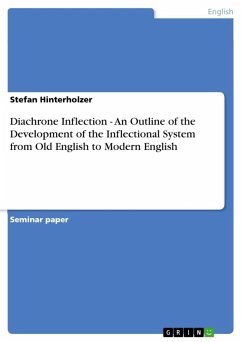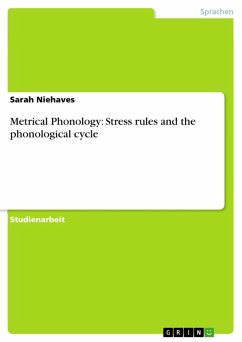Seminar paper from the year 2009 in the subject English Language and Literature Studies - Linguistics, grade: A, University of Wales, Bangor, course: Phonology, language: English, abstract: In many languages word stress is quite predictable: in Czech the first syllable of a word always carries the main stress. In French the ultimate syllable is the most prominent each time. The penultimate syllable is constantly stressed in Polish. As can be seen, there are strict general rules with respect to a word's stress. In English, however, the stressing of a lexeme appears to be arbitrary rather than following certain stress rules. The spelling does not indicate a word's pronunciation, let alone its stress. Moreover, the stress may even differ within the same word. Thus, thir'teen can be stressed on the last syllable, but in an environment of another word, e.g. 'thirteen 'pints, it can also be pronounced with a prominent first syllable in order to keep eurhythmy. Nevertheless, it looks like native speakers have a perceptual ability to say how many syllables a word has and to tell which syllable receives the most stress. Therefore, Carr (1999) considers three trisyllabic non-English words: Gigondas, Zaventem and tavola. The author points out that English speakers always tend to stress the penultimate syllable mispronouncing each of theses words. Why do speakers with English as their mother tongue react in this way? Is this a proof of generalisation and existing stress patterns? In this essay it is discussed whether the primary stress of singular words has to be learned, e.g. like their spelling or the sequence of their phonemes, or if the stressing of a lexeme follows internalized rules (due to a lack of space, secondary stress shall be excluded here). For a more concise analysis of the issue, three main bases concerning primary stress patterns are examined: the syntactic, morphological and phonological information of a word.
Dieser Download kann aus rechtlichen Gründen nur mit Rechnungsadresse in A, B, BG, CY, CZ, D, DK, EW, E, FIN, F, GR, HR, H, IRL, I, LT, L, LR, M, NL, PL, P, R, S, SLO, SK ausgeliefert werden.









